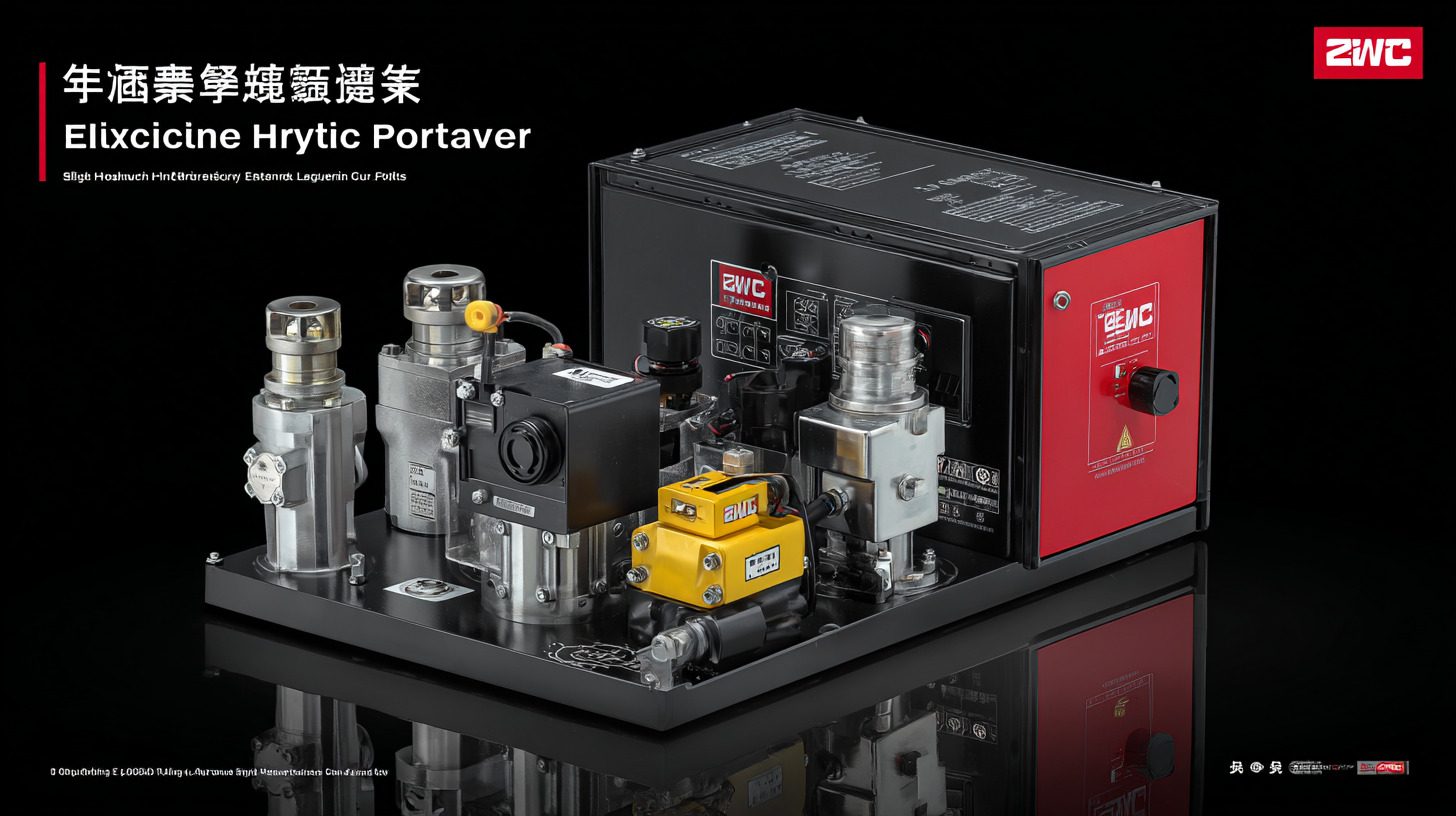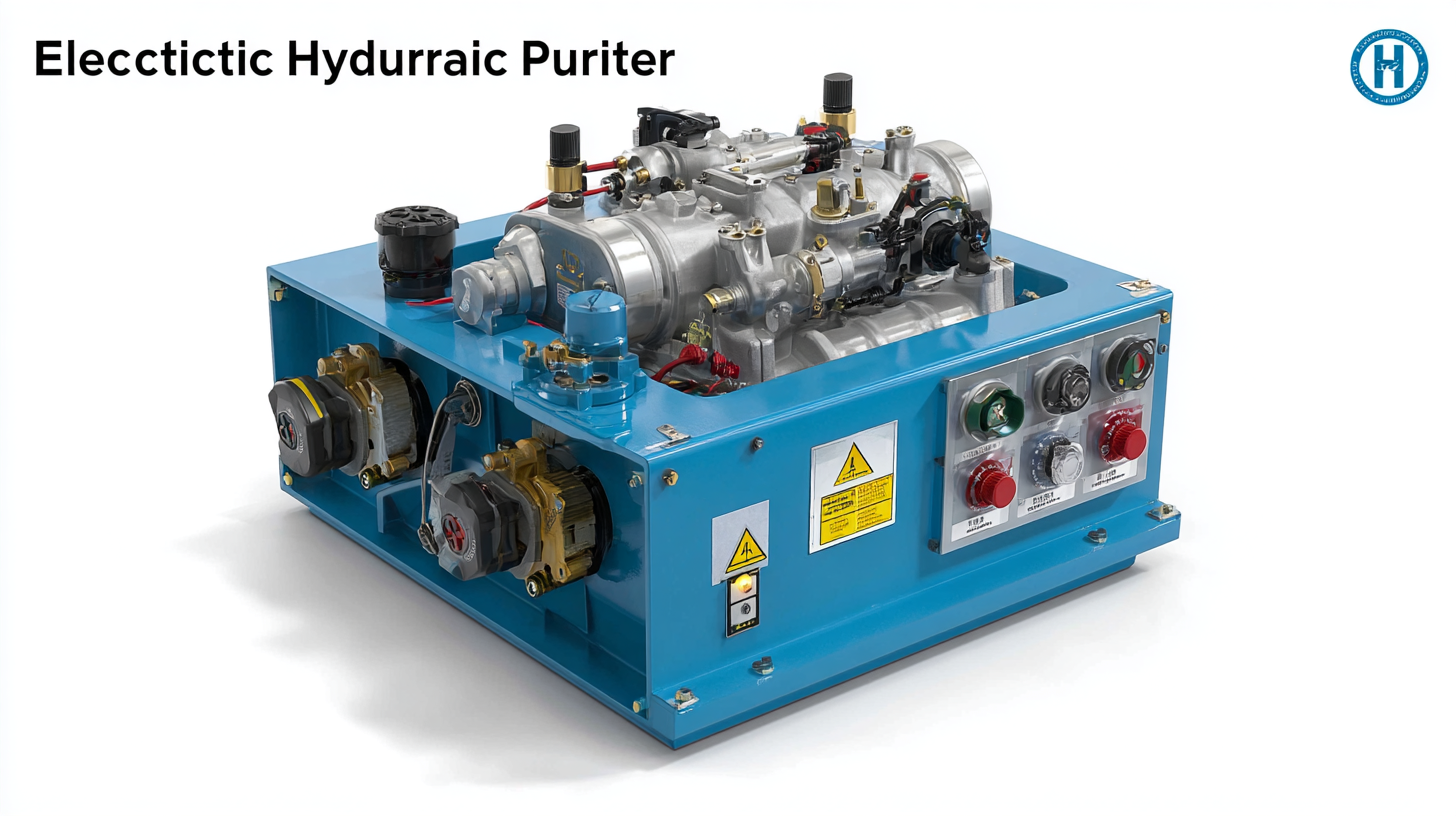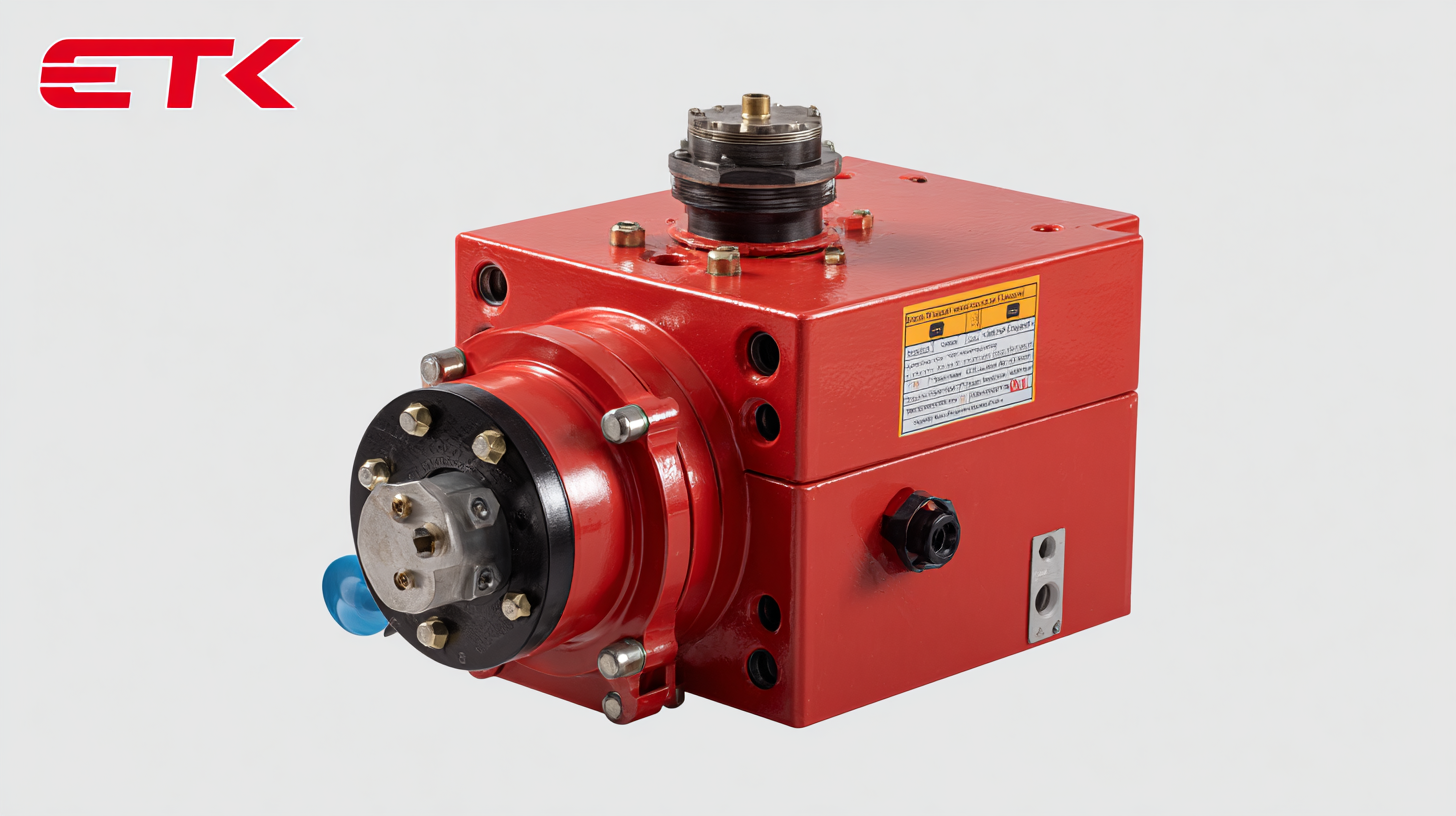International Fluid Power Inc.
International Fluid Power - Innovative Partners For Global Sourcing Of Fluid Power Products. Your Complete Hydraulic Source in SE Minnesota.
INTERNATIONAL FLUID POWER, INC.
Exploring the Advantages of the Best Electric Hydraulic Power Unit
The Electric Hydraulic Power Unit (EHPU) is becoming a cornerstone in various industrial applications due to its efficiency and eco-friendliness. According to a recent study by MarketsandMarkets, the global hydraulic power unit market is projected to grow from USD 2.85 billion in 2020 to USD 4.25 billion by 2025, demonstrating a CAGR of 8.5%. This surge is largely driven by the increasing adoption of electric hydraulic systems, which offer enhanced energy efficiency and reduced operational costs compared to traditional units. As industries seek sustainable solutions that comply with stringent environmental regulations, the demand for robust Electric Hydraulic Power Units continues to rise. In this blog, we will explore the advantages of the best EHPUs on the market, backed by comparative analysis and insights from industry trends, ensuring that you are equipped with the knowledge needed to navigate this evolving landscape.

The Evolution of Electric Hydraulic Power Units in Modern Industries
The evolution of electric hydraulic power units has significantly transformed various modern industries, enhancing operational efficiency and machine functionality. Over the past few decades, advancements in electro-hydraulics have propelled these systems to the forefront of off-highway vehicle design. By integrating electronic controls with hydraulic components, manufacturers are now able to create more compact, efficient, and powerful machinery. This shift not only improves performance but also responds to the growing demand for sustainability in industrial applications.

Recent surveys reveal that electro-hydraulic implement systems have gained traction across both industry and academia, showcasing innovative methods to increase productivity while minimizing energy consumption. In fact, the emergence of compact hydraulic systems has become a key trend, allowing for lighter machinery that maintains robust capabilities. The continuous development in energy storage technologies also supports this evolution, enabling seamless integration with renewable energy sources, thereby aiding in the decarbonization of global energy systems. As industries adapt to these technological advancements, the reliance on electric hydraulic power units is projected to grow, presenting a promising future for enhanced efficiency and performance.
Key Benefits of Adopting Electric Hydraulic Power Units in Manufacturing
Electric hydraulic power units (EHPUs) are transforming manufacturing processes by providing a range of benefits that enhance efficiency and productivity. One of the key advantages of adopting EHPUs is their energy efficiency. Unlike traditional hydraulic systems that often rely on gasoline or diesel power, electric units minimize energy consumption and reduce operational costs. This is particularly crucial for manufacturers looking to reduce their carbon footprint while maintaining high levels of performance.
Another significant benefit is the precision and control offered by electric hydraulic power units. These systems enable operators to achieve finer adjustments and maintain consistent pressure, which is essential for complex manufacturing tasks. The ability to program and automate these units enhances operational reliability, leading to less downtime and improved overall production quality. Moreover, EHPUs operate more quietly than their hydraulic counterparts, contributing to a better workplace environment by decreasing noise levels and promoting a safer atmosphere for workers.
Advantages of Electric Hydraulic Power Units in Manufacturing
Comparative Analysis: Electric vs. Traditional Hydraulic Power Units
When choosing a hydraulic power unit, the debate between electric and traditional hydraulic systems often takes center stage. Electric hydraulic power units have gained popularity due to their numerous advantages, particularly in efficiency and environmental impact. Unlike their conventional counterparts, which rely on gasoline or diesel, electric units operate without emissions, making them a cleaner and more sustainable choice. This factor becomes increasingly significant in industries striving to meet environmental regulations and reduce their carbon footprint.

Additionally, electric hydraulic power units offer superior energy efficiency. They can efficiently convert electrical energy directly into hydraulic energy, resulting in reduced operational costs over time. In contrast, traditional hydraulic systems often waste energy through heat, which can lead to higher fuel costs and increased maintenance needs. Moreover, electric units typically provide quieter operation, enhancing workplace safety and comfort, particularly in urban settings or enclosed environments where noise pollution is a concern.
Ultimately, while traditional hydraulic power units still play a role in certain applications, the benefits of electric systems position them as a more modern and effective solution for many hydraulic power needs.
Future Trends: The Role of Electric Hydraulic Systems in Sustainable Engineering
As the world shifts towards sustainability, electric hydraulic systems are emerging as a crucial component in the engineering sector. These systems leverage electric power to operate hydraulic mechanisms, offering a significantly reduced environmental footprint compared to traditional hydraulic systems that rely on fossil fuels. The transition to electric hydraulic power units not only minimizes greenhouse gas emissions but also enhances energy efficiency, paving the way for more eco-friendly construction and manufacturing processes.
Moreover, electric hydraulic systems are increasingly being integrated into smart technology frameworks. This integration facilitates real-time monitoring and optimization of energy consumption, which is vital for reducing waste and improving overall system performance. The adaptability of electric hydraulic units allows them to be employed in a variety of applications, from heavy machinery to automated manufacturing lines, thereby promoting versatility in sustainable engineering practices.
As industries continue to prioritize environmental responsibility, electric hydraulic systems are set to play a significant role in shaping the future of engineering, driving innovation in ways that align with global sustainability goals.
Innovative Applications of Electric Hydraulic Power Units Across Various Sectors
Electric hydraulic power units (EHPUs) have revolutionized various sectors by offering efficient and reliable performance across numerous applications. One of the most innovative uses of EHPUs is in the construction industry, where they power equipment like hydraulic lifts and cranes. Their adaptability allows for precise control of heavy machinery, enabling construction teams to accomplish tasks more safely and efficiently. As these units are electric, they minimize noise pollution, which is a significant benefit in urban areas.
In the automotive industry, EHPUs are increasingly utilized for specialized tools such as hydraulic jacks and robotic arms that assist in manufacturing and repair processes. The ability to deliver consistent power without the need for compressed air makes them ideal for assembly lines, enhancing productivity and reducing downtime. Moreover, the portable nature of these units allows for ease of use in various settings, from factory floors to mobile repair shops.
**Tips:** When selecting an electric hydraulic power unit, consider the specific requirements of your application, such as power needs and portability. Frequent maintenance checks on seals and hydraulic fluids can greatly extend the life of your unit. Additionally, utilizing proper accessories like hoses and connectors can enhance efficiency and safety in your operations.
Exploring the Advantages of the Best Electric Hydraulic Power Unit - Innovative Applications of Electric Hydraulic Power Units Across Various Sectors
| Sector | Application | Power Unit Type | Advantages | Efficiency (%) |
|---|---|---|---|---|
| Construction | Heavy Equipment Operation | Portable Electric Hydraulic Unit | Reduced noise, lower emissions | 85 |
| Manufacturing | Machining Automation | Stationary Electric Hydraulic Unit | Consistent power, energy-efficient | 90 |
| Agriculture | Precision Farming Equipment | Compact Electric Hydraulic Unit | Improved control, lightweight | 78 |
| Automotive | Vehicle Lifting and Repair | Electric Hydraulic Floor Jack | Quick lift, easy operation | 88 |
| Marine | Boat Lifting Systems | Electric Hydraulic Lift | Corrosion-resistant, reliable | 82 |
You Can Find International Fluid Power Here:
Search For:
Footer #4 Widget
This is an example of a widget area that you can place text to describe a product or service. You can also use other WordPress widgets such as recent posts, recent comments, a tag cloud or more.
© 2025 International Fluid Power, Inc. All Right Reserved.